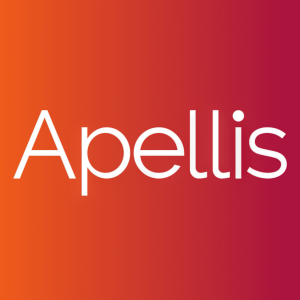Apellis and Sobi Announce Positive Topline Results from Phase 3 VALIANT Study of Pegcetacoplan in C3G and Primary IC-MPGN
Rhea-AI Summary
Apellis Pharmaceuticals (Nasdaq: APLS) and Sobi announced positive topline results from the Phase 3 VALIANT study of pegcetacoplan in C3 glomerulopathy (C3G) and primary immune complex membranoproliferative glomerulonephritis (IC-MPGN). The study met its primary endpoint, showing a statistically significant 68% reduction in proteinuria compared to placebo at Week 26. Results were consistent across all subgroups, including C3G and IC-MPGN, adolescent and adult patients, and native and post-transplant kidneys.
Pegcetacoplan also demonstrated significance on key secondary endpoints and favorable safety. Apellis plans to submit a supplemental new drug application to the FDA in early 2025, while Sobi plans to submit a marketing application with the EMA in 2025.
Positive
- Met primary endpoint with 68% reduction in proteinuria (p<0.0001)
- Positive results consistent across all subgroups
- Demonstrated statistical significance on key secondary endpoints
- Favorable safety profile consistent with established data
- Plans for regulatory submissions in US and EU in 2025
Negative
- None.
News Market Reaction 1 Alert
On the day this news was published, APLS gained 12.12%, reflecting a significant positive market reaction.
Data tracked by StockTitan Argus on the day of publication.
- Met the primary endpoint, achieving statistically significant
68% (p<0.0001) reduction in proteinuria compared to placebo in a broad study population - Positive results consistent across all subgroups, including C3G and IC-MPGN, adolescent and adult patients, and native and post-transplant kidneys
- Demonstrated favorable safety, consistent with established profile
- Companies plan to submit data for regulatory approval in the US and EU
- Apellis to host a conference call today at 8:00 a.m. ET
WALTHAM, Mass. and STOCKHOLM, Aug. 08, 2024 (GLOBE NEWSWIRE) -- Apellis Pharmaceuticals, Inc. (Nasdaq: APLS) and Sobi® (STO: SOBI) today announced positive topline results from the Phase 3 VALIANT study investigating systemic pegcetacoplan in patients with C3 glomerulopathy (C3G) or primary immune complex membranoproliferative glomerulonephritis (IC-MPGN), which are rare kidney diseases with no approved treatments.
The study met the primary endpoint, demonstrating a statistically significant and clinically meaningful
Pegcetacoplan also demonstrated statistical significance on the key secondary endpoints of composite renal endpoint, which combines proteinuria reduction and estimated glomerular filtration rate (eGFR) stabilization, and proteinuria reduction of at least
“As a clinician, I’m thrilled by these groundbreaking results, which show that pegcetacoplan has the potential to significantly improve the lives of patients with C3G and IC-MPGN, regardless of disease type, age, and transplant status,” said Carla Nester, M.D. MSA, FASN, lead principal investigator for the VALIANT study and Jean E. Robillard M.D., professor of pediatric nephrology, University of Iowa Stead Family Children's Hospital. “Currently, many patients living with these rare diseases will eventually require a kidney transplant or lifelong dialysis, so there is an urgent need for a treatment that targets the underlying cause of these diseases. These positive data are a major advance for the rare kidney disease community.”
“These results exceeded our already high expectations. Pegcetacoplan is the first investigational therapy to show such a strong reduction in proteinuria in C3G and IC-MPGN with supportive data across multiple measures of disease activity,” said Jeffrey Eisele, Ph.D., chief development officer, Apellis. “Building on pegcetacoplan’s approval in PNH, we look forward to sharing these data with the FDA and working quickly to bring this treatment to patients with these debilitating kidney diseases.”
"Today’s announcement further strengthens our belief in pegcetacoplan’s potential to meet the critical needs of patients with these severe and life-threatening kidney conditions," stated Lydia Abad-Franch, M.D., head of R&D, medical affairs, and chief medical officer, Sobi. "We remain committed to progressing pegcetacoplan's development and expanding its reach, driven by our steadfast mission to transform the lives of those affected by rare diseases."
In the VALIANT study, pegcetacoplan demonstrated favorable safety and tolerability, consistent with its established profile. Rates of adverse events (AEs), serious AEs, and AEs leading to study drug discontinuation were similar between the pegcetacoplan and placebo groups. There were no cases of meningitis or serious infections attributed to encapsulated bacteria.
All patients who have already completed the VALIANT study have now enrolled into the VALE long-term extension study.
Apellis plans to submit a supplemental new drug application to the U.S. Food and Drug Administration in early 2025. Sobi also plans to submit a marketing application with the European Medicines Agency in 2025. Detailed data will be presented at an upcoming medical congress.
Conference Call and Webcast
Apellis will host a conference call and webcast with Andrew Bomback, M.D., principal investigator for the VALIANT study and director of clinical research, division of nephrology at Columbia University Medical Center to discuss the Phase 3 VALIANT results on Thursday, August 8 at 8:00 a.m. ET. To access the live call by phone, please dial (877) 550-1707 (U.S.) or (848) 488-9020 (International) and reference “Apellis Pharmaceuticals”. A live audio webcast of the event may also be accessed through the “Events and Presentations” page of the “Investors and Media” section of the company’s website. A replay of the webcast will be available for 30 days following the event.
About the VALIANT Study
The VALIANT Phase 3 study (NCT05067127) is a randomized, placebo-controlled, double-blinded, multi-center study designed to evaluate pegcetacoplan efficacy and safety in 124 patients who are 12 years of age and older with C3G or primary IC-MPGN. It is the largest single trial conducted in these populations and the only study to include adolescent and adult patients, with native and post-transplant kidneys. Study participants were randomized to receive 1080 mg of pegcetacoplan or placebo twice weekly for 26 weeks. Following this 26-week randomized controlled period, patients are able to proceed to a 26-week open-label phase in which all patients receive pegcetacoplan. The primary endpoint of the study was the log transformed ratio of urine protein-to-creatinine ratio (uPCR) at Week 26 compared to baseline.
About C3 Glomerulopathy (C3G) and Primary Immune-Complex Membranoproliferative Glomerulonephritis (IC-MPGN)
C3G and primary IC-MPGN are rare and debilitating kidney diseases that can lead to kidney failure. Excessive C3c deposits are a marker of disease activity, which can lead to kidney inflammation, damage, and failure. There are no treatments that target the underlying cause of these diseases. Approximately
About Pegcetacoplan in Rare Diseases
Pegcetacoplan is a targeted C3 therapy designed to regulate excessive activation of the complement cascade, a part of the body’s immune system, which can lead to the onset and progression of many serious diseases. Pegcetacoplan is under investigation for rare diseases across hematology and nephrology. Pegcetacoplan is approved for the treatment of paroxysmal nocturnal hemoglobinuria (PNH) as EMPAVELI®/Aspaveli® in the United States, European Union, and other countries globally.
About the Apellis and Sobi Collaboration
Apellis and Sobi have global co-development rights for systemic pegcetacoplan. Sobi has exclusive ex-U.S. commercialization rights for systemic pegcetacoplan, and Apellis has exclusive U.S. commercialization rights for systemic pegcetacoplan and worldwide commercial rights for ophthalmological pegcetacoplan, including for geographic atrophy.
About Sobi®
Sobi is a specialized international biopharmaceutical company transforming the lives of people with rare and debilitating diseases. Providing reliable access to innovative medicines in the areas of hematology, immunology, and specialty care. Sobi has approximately 1,800 employees across Europe, North America, the Middle East, Asia, and Australia. In 2023, revenue amounted to SEK 22.1 billion. Sobi's share (STO:SOBI) is listed on Nasdaq Stockholm. More about Sobi at sobi.com and LinkedIn.
About Apellis
Apellis Pharmaceuticals, Inc. is a global biopharmaceutical company that combines courageous science and compassion to develop life-changing therapies for some of the most challenging diseases patients face. We ushered in the first new class of complement medicine in 15 years and now have two approved medicines targeting C3. These include the first-ever therapy for geographic atrophy, a leading cause of blindness around the world. We believe we have only begun to unlock the potential of targeting C3 across serious retinal, rare, and neurological diseases. For more information, please visit http://apellis.com or follow us on X (Twitter) and LinkedIn.
Apellis Forward-Looking Statement
Statements in this press release about future expectations, plans and prospects, as well as any other statements regarding matters that are not historical facts, may constitute “forward-looking statements” within the meaning of The Private Securities Litigation Reform Act of 1995. These statements include, but are not limited to, statements regarding plans to submit applications for regulatory approval for the treatment of patients with C3G and IC-MPGN. The words “anticipate,” “believe,” “continue,” “could,” “estimate,” “expect,” “intend,” “may,” “plan,” “potential,” “predict,” “project,” “should,” “target,” “will,” “would” and similar expressions are intended to identify forward-looking statements, although not all forward-looking statements contain these identifying words. Actual results may differ materially from those indicated by such forward-looking statements as a result of various important factors, including whether systemic pegcetacoplan will receive approval for those indications from the FDA or equivalent foreign regulatory agencies when expected or at all; and any other factors discussed in the “Risk Factors” section of Apellis’ Annual Report on Form 10-K with the Securities and Exchange Commission on February 27, 2024 and the risks described in other filings that Apellis may make with the Securities and Exchange Commission. Any forward-looking statements contained in this press release speak only as of the date hereof, and Apellis specifically disclaims any obligation to update any forward-looking statement, whether as a result of new information, future events or otherwise.
Media:
Tracy Vineis
media@apellis.com
617.977.6764
Investors:
Meredith Kaya
meredith.kaya@apellis.com
617.599.8178
References
1. C3 glomerulopathy. National Institute of Health, Genetics Home Reference. https://ghr.nlm.nih.gov/condition/c3-glomerulopathy#resources. Accessed November 21, 2019.
2. Zand L, et al Clinical findings, pathology, and outcomes of C3GN after kidney transplantation. J Am Soc Nephrol. 2014 May;25(5):1110-7. doi: 10.1681/ASN.2013070715. Epub 2013 Dec 19.
3. Data on file using literature consensus.









